Germany is blessed with some of the most beautiful lakes in Europe and is known for its stunning natural landscapes, outdoor recreation, skiing and mountain climbing. From adventure to relaxation or cultural exploration, lakes in Germany offer a variety of experiences. Many of these lakes are dotted with scenic villages and preserved castles, which leaves plenty of time for sightseeing. Outdoor types can delight in sailing, kayaking, hiking and cycling, while history lovers can explore ancient monasteries and royal residences. The lakes of Germany are also significant ecological habitats, with their rich biodiversity and unpolluted waters.
A Guide to 10 Spectacular Lakes in Germany
Here are 10 most stunning lakes in Germany that are perfect for adventure, relaxation, and breathtaking sightseeing for your next visit.
1. Lake Constance / Bodensee
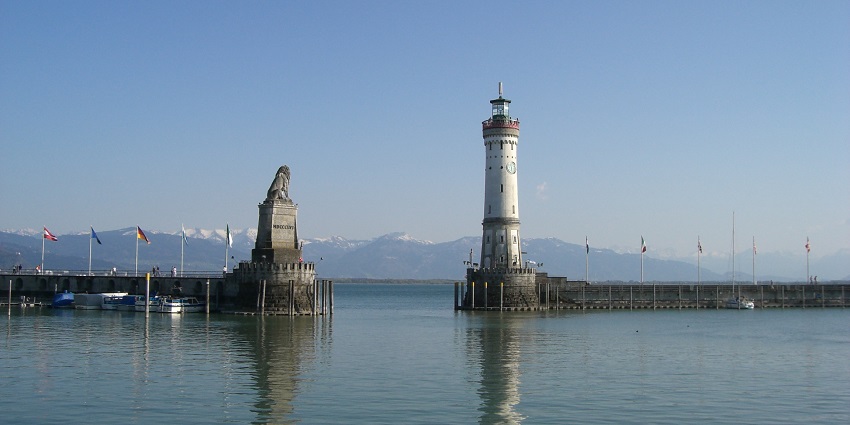
Photo: Markus Bernet / Wikimedia Commons
Germany’s largest lake, Lake Constance, in Austria and Switzerland, spans 536 sq km. It has three parts, the Obersee, the Untersee, and the Seerhein. Its depth of 251 meters make it an important freshwater source and wildlife habitat, as well as home to a range of rare bird species. The lake’s banks are lined with pretty towns like Lindau, Meersburg and Friedrichshafen, which boast historic sights and lovely promenades. You can visit Mainau Island, known for its botanical gardens, or Reichenau Island, a UNESCO-designated monastery complex. One key destination is the Zeppelin Museum in Friedrichshafen, which appeals to aviation buffs.
Location: Baden-Württemberg and Bavaria
Best Time To Visit: May – September
2. Königssee
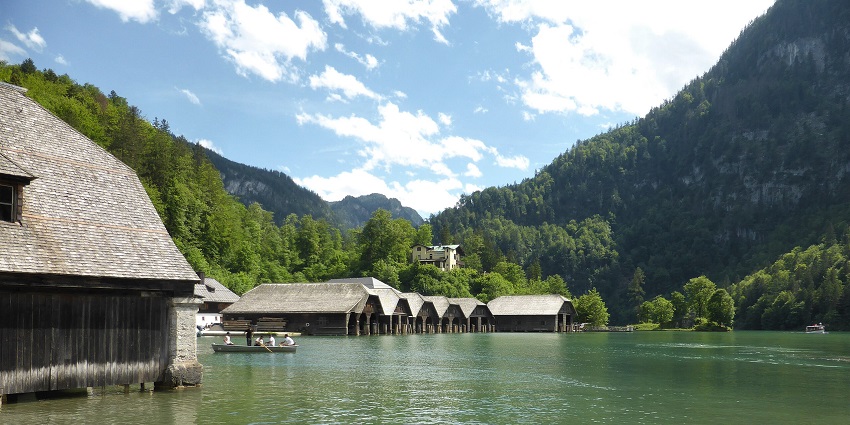
Photo: Rosa-Maria Rinkl / Wikimedia Commons
One of Germany’s most beautiful lakes, Königssee, sits amid Berchtesgaden National Park. Fringed by steep limestone cliffs, the emerald-green lake looks like a Scandinavian fjord. It is Germany’s cleanest lake, and only electric boats are permitted to keep its waters pristine. A boat ride to St. Bartholomä, a centuries-old pilgrimage church topped with an onion dome, is the highlight. The spectacle is the lake’s echo phenomenon; boat captains show off its unusual acoustics. Hiking trails lead toward the secluded Obersee, a hidden Alpine lake with transparent waters. In winter, Königssee morphs into a tranquil paradise perfect for cross-country skiing and ice hiking.
Location: Bavaria
Best Time To Visit: June – October
3. Eibsee
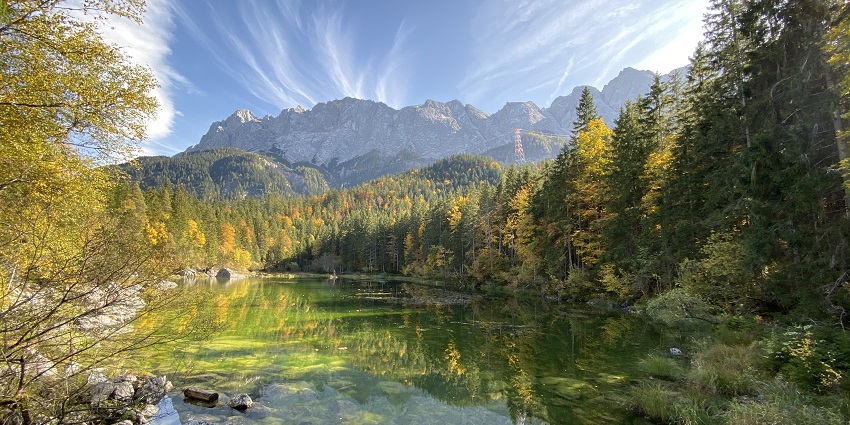
Photo: Matt8cc / Wikimedia Commons
A turquoise alpine lake, Eibsee, is at the foot of Germany’s highest peak, Zugspitze. Situated outside Garmisch-Partenkirchen, it spans 1.77 sq km and has a depth of 35 meters. It consists of eight small islands, which make it quite scenic. The 7 km long trail that circles the lake also offers amazing views of the Zugspitze and the reflection of the surrounding mountains. The lake’s calm waters also make kayaking and stand-up paddleboarding popular. In winter, Eibsee becomes a snowy paradise for snowshoeing and ice skating.
Location: Bavaria
Best Time To Visit: May – October
4. Chiemsee
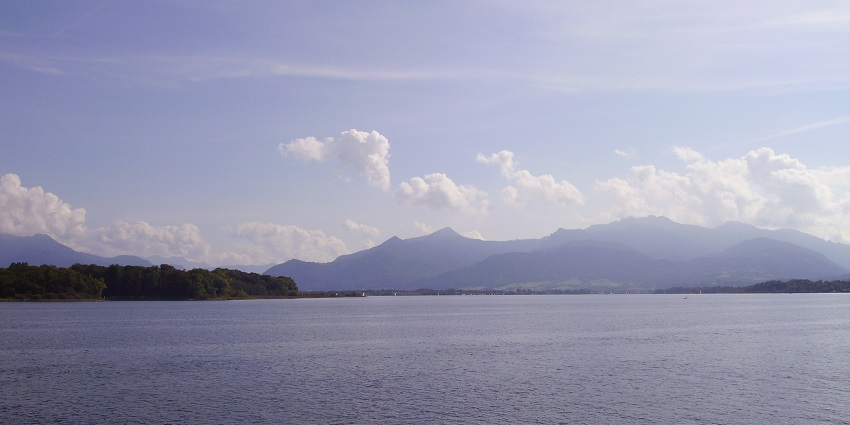
Photo: Zairon / Wikimedia Commons
Dubbed the “Bavarian Sea,” Chiemsee is Bavaria’s largest lake, at 80 square kilometres. It is best known for its three main islands, Herreninsel, Fraueninsel, and the uninhabited Krautinsel. Herreninsel is the site of the lavish Herrenchiemsee Palace, constructed for King Ludwig II. Fraueninsel, by contrast, is an oasis of calm, home to an 8th-century Benedictine abbey famous for its marzipan. Lake Balaton is also one of the most popular places on the mainland for sailing and windsurfing because of the large area of open water. Boat tours operate regularly, giving visitors a chance to visit the islands and lovely lakeside villages.
Location: Bavaria
Best Time To Visit: May – September
5. Tegernsee
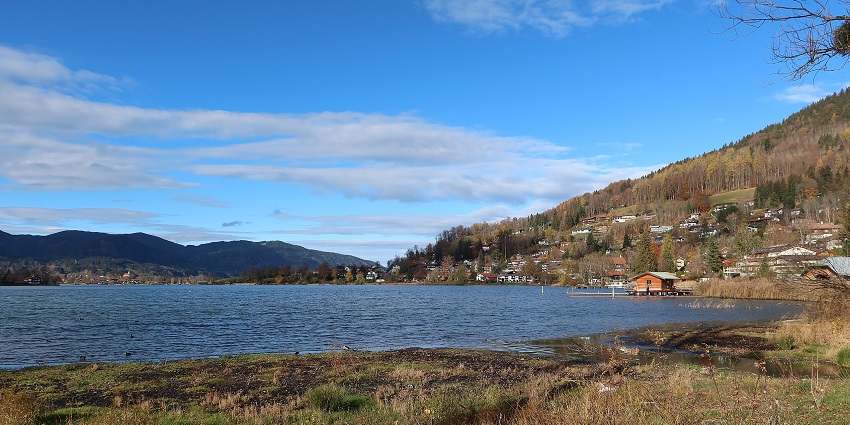
Photo: Strubbl / Wikimedia Commons
Tegernsee, in the Bavarian Alps, is a clean lake perfect for spa resorts and outdoor activities. It has served as a health retreat since the 19th century. The lakeside village of Bad Wiessee is known for its healing iodine-sulphur springs, attracting wellness enthusiasts year round. A glimpse of true Bavarian brewing traditions can be enjoyed at a tour of the historic Tegernsee Monastery. Hiking routes encircling the lake open to idyllic vistas such as Wallberg, a popular paragliding launch site, where stunning panoramas await. The lake serves as a centrepiece for water sports, such as kayaking and paddleboarding. In winter, Tegernsee becomes a dreamy white wonderland.
Location: Bavaria
Best Time To Visit: Year round
6. Walchensee

Photo: Carol M. Highsmith / Wikimedia Commons
Walchensee is one of the deepest as well as the largest lake in Germany. The lake is a wind and water sports paradise, especially popular for windsurfing and kite surfing. Nearby hiking trails lead to scenic overlooks, and the Herzogstand aerial tramway provides sweeping views of the Bavarian Alps. The area is steeped in history, including the remains of a Roman road and a museum dedicated to the Walchensee hydroelectric plant. The lake’s clear waters and sunken World War II aircraft attract divers. Kochel am See nearby is famous for its wellness resorts and the Franz Marc Museum, which celebrates the Expressionist painter.
Location: Bavaria
Best Time To Visit: June – September
7. Schluchsee
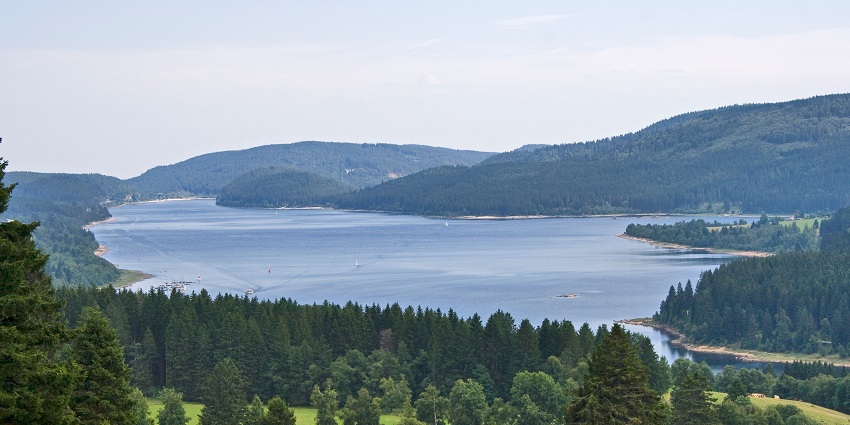
Photo: Michael Overmeyer / Wikimedia Commons
The largest lake in the Black Forest, Schluchsee, created as an artificial reservoir, offers picture-perfect landscapes and outdoor recreation. At an altitude of 930 meters above sea level, the reservoir is the highest in Germany, making for a great climate for hiking, cycling and water sports. Due to its very high water quality, the lake is popular for sailing, windsurfing, and swimming. Additional trails offer panoramic views of the dense Black Forest. Take a scenic boat cruise to explore the lake’s beauty. In winter, Schluchsee becomes a snow-covered fairytale with skiing and snowshoeing trails.
Location: Baden-Württemberg
Best Time To Visit: May – October
8. Müritz
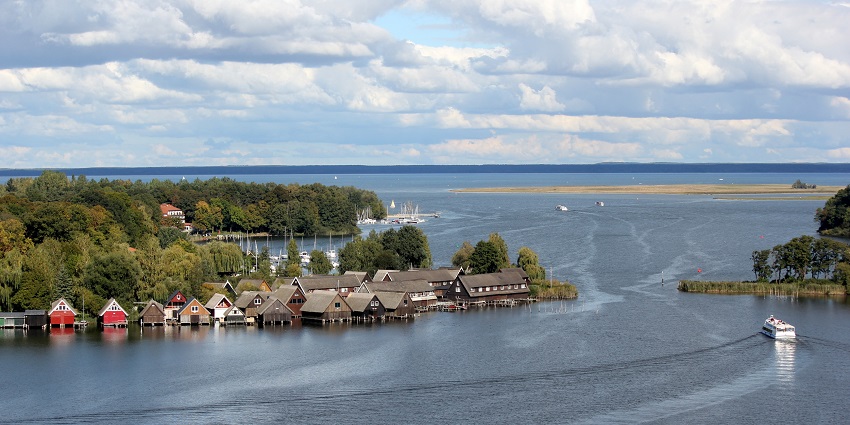
Photo: Julian Nyča / Wikimedia Commons
Germany’s second-largest lake, Müritz, is at the centre of the Mecklenburg Lake District. The lake’s blue waters and surrounding forests render it an attractive destination for nature lovers. Within the national park, birdwatchers can catch a glimpse of rare species such as ospreys and white-tailed eagles. Kayaking and canoeing on the lake’s extensive network gives visitors a means to discover secluded inlets and unspoiled scenery. Boat tours run from Waren, the largest town on the lake, providing scenic rides across the waters. Cycle paths, like the Müritz Circular Route, are stunning with their views of lakes.
Location: Mecklenburg-Vorpommern
Best Time To Visit: May – September
9. Starnberger See
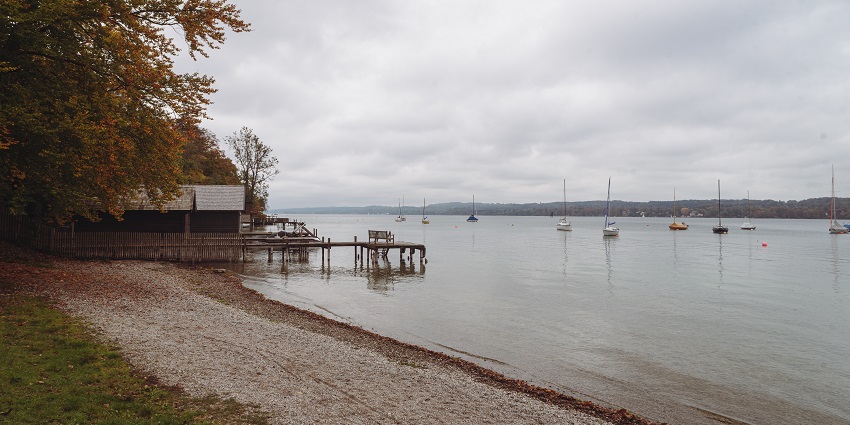
Photo: Flocci Nivis / Wikimedia Commons
Bavaria’s fifth-largest lake, Starnberger See, is popular with Munich denizens. A mere 25 km from the city, the frigid lake covers 56 square kilometres. Bavaria’s King Ludwig II drowned under mysterious circumstances here in 1886. Surrounding the lake are his luxury villas, former summer retreats of Bavarian nobility. The town of Starnberg features high-end dining and lakeside promenades. Visitors can explore the Votivkapelle or can take a boat tour to Rose Island, which has a royal villa. Sailing, stand-up paddleboarding and swimming are popular pastimes, and the trails surrounding them draw cyclists and hikers.
Location: Bavaria
Best Time To Visit: April – October
10. Titisee
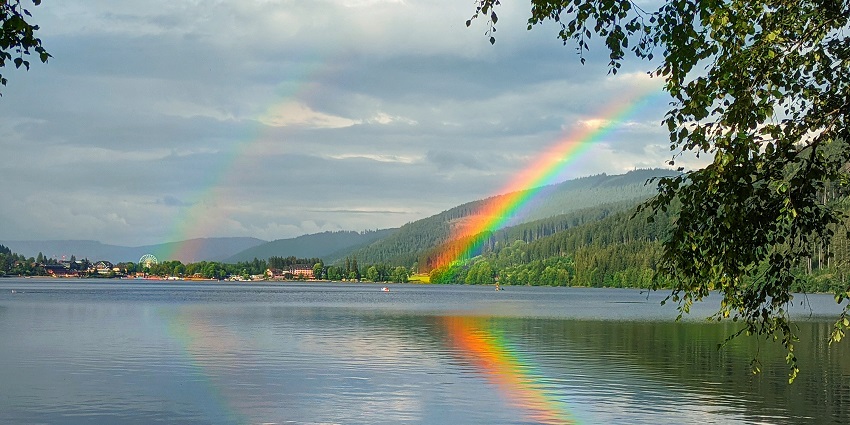
Photo: XdTAGCLAN / Wikimedia Commons
Titisee is the pearl of the Black Forest, a sparkling glacial lake with a long history of tourism. The lakeside promenade in Titisee-Neustadt is fringed with cafés and shops selling traditional Black Forest souvenirs. The lake is a centre for pedal boating, stand-up paddleboarding and swimming in the summer. In winter, Titisee freezes, forming a natural ice-skating rink. The neighbouring Hochfirst mountain provides good skiing opportunities. Near it, the Badeparadies Schwarzwald is a thermal bath tropical water park, contributing to the wellness essence of the lake.
Location: Baden-Württemberg
Best Time To Visit: May – February
Numerous lakes in Germany provide a wonderful combination of scenic landscapes, exciting activities and cultural legacy. These lakes are great to check out all year round; in summer, they’re perfect for water sports, while in winter, they’re covered in white flurries. Whether you’re an adventure seeker or a nature lover, there’s something for everyone. Germany’s lakes should be on every traveller’s list thanks to their easy accessibility as well as excellent tourist infrastructure. Plan your visit to these beautiful lakes with TripXL.
Cover Photo: Gerryknips / Wikimedia Commons


 WhatsApp
WhatsApp
 Twitter
Twitter









